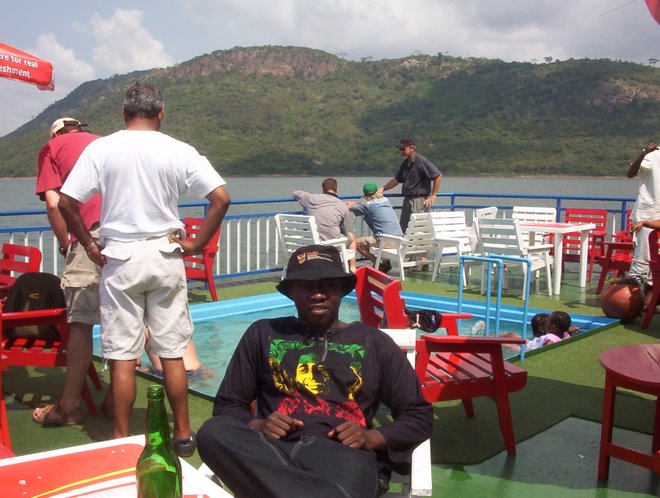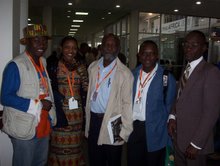Moves to ensure food safety during CAN 2008
With CAN 2008 fever about to grip the nation, food joints and restaurants around the country look set for an outing and with football fans and tourists hanging away from home on unfamiliar ground, the chances for food poisoning could occur.
The general trend is that it is easy for cookers to forget about good food hygiene practices when cooking for large numbers of people.
As a result the Ministry of Health in collaboration with the Food and Drugs Board (FDB) has rolled out a programme to ensure food safety during CAN 2008 in a bid to back a campaign to help reduce food poisoning.
It has accordingly tasked the FDB in collaboration with the Ghana Tourist Board to organise series of training programmes for those in the hospitality industry to help raise and maintain hygienic and clean environment.
At one of such training programmes in Kumasi Mr Joseph Bennie, Zonal Officer of the FDB in charge of Ashanti and Brong Ahafo noted that food poisoning was one goal no one would want to score against their friends and family.
“If food is not stored, prepared or cooked properly then food bugs like cockroaches can cause severe illness. But it can be easily avoided if you follow basic food hygiene standards”.
He emphasised that some simple hygiene measures will go a long way towards cutting the risks and putting on a successful, tasty and incident free food during the period of the tournament.
The FDB is currently meeting and auditing facilities at various hospitality industries aimed at ensuring that people in the hospitality industry meet the standard of the visitors and supporters who would be hosted during the tournament.
It is also organising custom design training for each facility based on observations made at each hospitality outfit.
In Kumasi for instance, six hotels Golden Tulip (former City Hotel), Royal Basin, Crystal Rose, Georgia Hotel, Flossid Hotel and Miklin Hotel have been selected by the Kumasi Venue Organising Committee (KVOC) as outfits that would host footballers, officials and journalists.
Aside the six selected facilities the FDB is to extend the programme to other hotels and managers of restaurants, drinking and chop bar operators, water sachet and drink producers, food vendors as well as bar attendants and bakers in areas around the stadium, at Asafo, Asokwa and Amakom.
They are to be taken through topics such as personal hygiene, food safety, housekeeping, food handling procedures, food care, and maintenance and cleaning, kitchen, and lavatories among others giving various advices on good food hygiene and reducing the risks of food poisoning.
Over the CAN 2008 period the FDB would also be organising random inspection of various hospitality industries.
Mr Bennie noted that some people who sold food to the consuming public did not care about the environment in which the food was prepared.yap
He therefore called on all to ensure that the right thing was done and also called for management commitment to ensure that the right thing was done in the kitchens of the hospitality industry noting that on various inspection tour by the FDB it was realised that there was no management commitment in some kitchens.
He said the international media was likely to blow out of proportion the slightest incident of food poisoning in any outfit hence there was the need to ensure that nothing of that sort occurred.
Mr Ben Anane Nsiah, Regional Director of the Ghana Tourist Board (GTB) said when it come to facilities at the stadium, he could be sure of that but he cannot vouch for the hospitality industry.
“For us, it is time to let the world know that we are ready. It is an opportunity to showcase Ghana”.







































